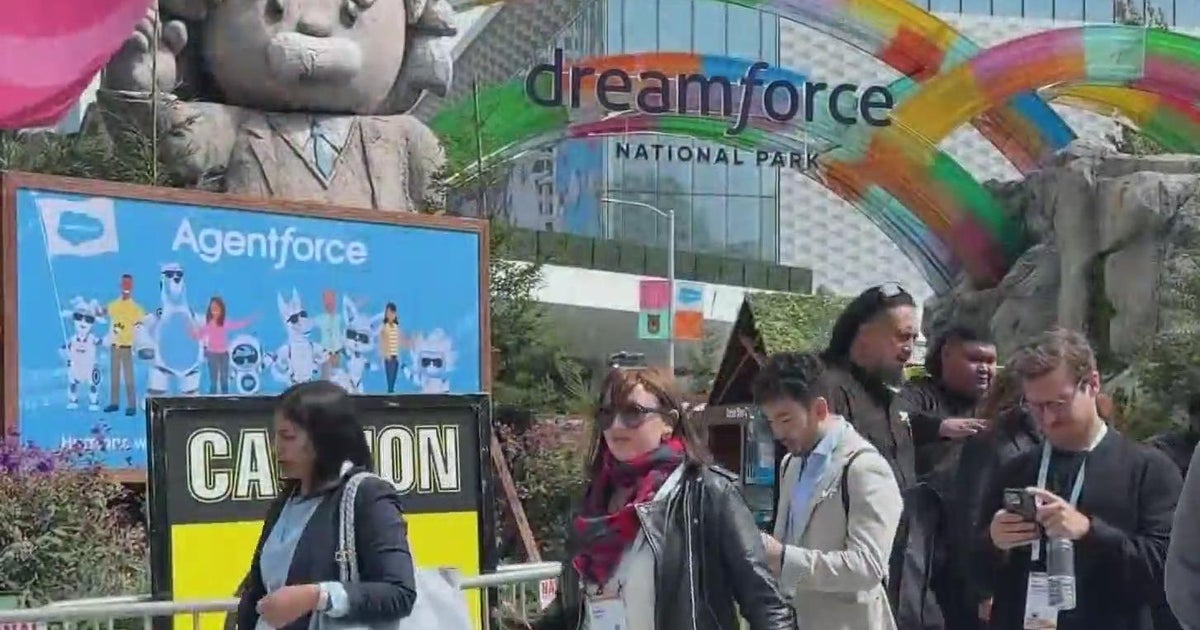San Jose 9-year-old's podcast on family's journey gains national recognition
Nine-year-old Ameya Desai was at Williams Elementary School when she heard some of her friends and classmates talking about wars and conflicts in the Middle East and Eastern Europe.
"There's so many wars happening right now. There's so many people being displaced and they have to move away from the things they love. Their family is torn apart," Ameya said.
Ameya said she went to her parents, Nikhil Desai and Priya Ghandikota, because she "really wanted to know what was going on." That's how she learned her grandfather was also displaced from his home in 1972.
"My grandfather, at a young age, was forced from his homeland in Uganda," Ameya said. "My grandfather had to give up his passport and he became stateless."
In 1972, Ugandan President Idi Amin ordered all Asians in his country to leave within 90 days. Amin, a military officer who ruled as a dictator, forced tens of thousands of Uganda's South Asian residents to leave and find a new home.
"What my grandfather went through really relates to that," Ameya said.
Ameya decided to write about her grandfather's journey and enter it as a submission to the San Jose Public Library's "2023 Short Story Contest." Her story recalling her grandfather's displacement was awarded first place in the age 8-9 category.
However, Ameya said she wanted her grandfather's story to be heard by more people. That's how she stumbled upon NPR's Student Podcast Challenge.
Ameya, who is now in the early stages of her fifth-grade journey, saw a major change in the challenge. For the first time since it started the challenge five years ago, NPR was opening a category for fourth graders.
There was just one problem.
"I do not know any computer stuff. That's the one thing I'm horrible at," Ameya said.
"We had never done a podcast before. I have no idea how to do a podcast," Nikhil Desai, Ameya's father, said. "But to support my daughter, I learned."
That's not all Nikhil learned while helping his daughter turn her story into a podcast. Ameya's grandfather is Nikhil's father.
"As he was telling his story to Ameya, there were a lot of details that I had never known about growing up. It made me feel closer to my dad. It made me understand him more. And it made me look back at his history through a different lens," Nikhil said. "His story's a story that's not widely known to the general public, so I think it helps create awareness to that era of history and what happened to South Asians in Uganda."
After a grueling process involving multiple revisions and some fatherly patience according to Ameya, "Far From Home - A Story of Forced Migration" was born and exported.
On August 30, NPR announced Ameya was one of a few fourth graders who won the nationwide contest. A panel judged the podcast using a criteria of information/structure (40%), personality/creativity (40%), and production quality (20%).
Ameya's podcast was also featured on "All Things Considered", the broadcaster's preeminent news program.
"It just kind of gives me hope that these kids are not just articulate, but they actually care about something," Priya Ghandikota, Ameya's mother, said. "Things matter to them. What's going on in the world matters to them."
Ameya's grandfather is currently living in Tampa, Florida. He is taken aback by the attention his personal journey has garnered, according to Nikhil.
"None of us expected (this) would happen, but it sort of takes it to a whole new level in terms of cementing his legacy. That's really what I take away from it all," Nikhil said.
Whether they won the podcast challenge or not, Ameya and her family appreciate the other victories the podcast venture brought: reconnecting with their family history, growing closer together as a household, and strengthening Ameya's traits as a storyteller.
"I don't think that these stories should just lie and wait. I think that when we share it, we are helping the next generation thrive," Ameya said. "I feel very proud that I'm surrounded with love (from my parents). I know I couldn't have done it without them ... Parents help their kids a lot, and sometimes, kids don't see it until after the results. So, for all the kids out there, I want to say, appreciate your parents."



